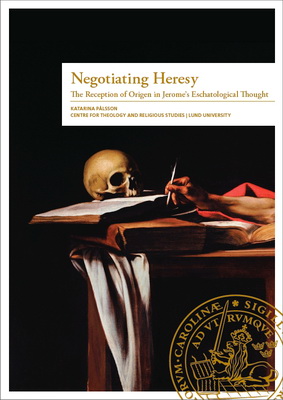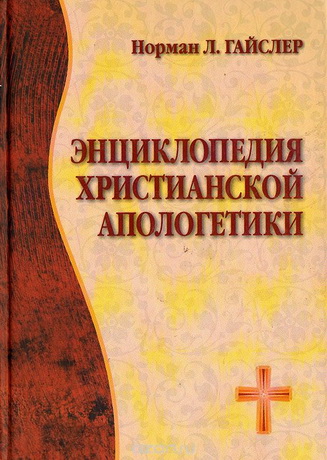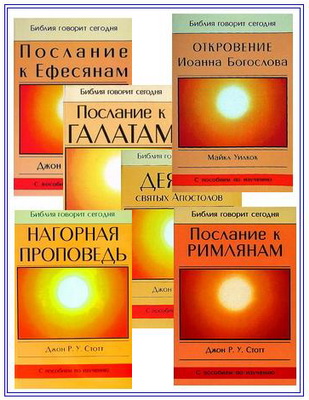
Pålsson Katarina - Negotiating Heresy
Jerome of Stridon (347-419/20) is to a large extent remembered for the controversies in which he was engaged. Although his role as a theologian has not been appreciated, his work as a polemicist and defender of what he considered to be orthodox teaching has been seen as defining, as has his work on the translation of the Bible and his exegesis. What is seldom remembered is that this champion of orthodoxy was almost constantly accused of heresy and in need of defending his own views against such accusations. An important part of the problem was his relation to Origen of Alexandria (185-253/54), an author by whom Jerome was immensely influenced, and yet accused of being a heretic. During the first Origenist controversy, Jerome’s anti-Origenist heresiology contributed to the branding of Origen as an arch-heretic, and the construction of “Origenism” as a heresy.
The overall aim of this book is to contribute to a nuanced assessment of Jerome's complex relation to Origen and his thought, a relation that was characterized by reception as well as by rejection, by approval as well as by polemics. In what follows, I will give a general introduction to Jerome’s career, to the controversies in which he was engaged, and to his relationship to Origen.
The point at which Jerome came to know the theology of Origen to an extent which influenced his own work is far from obvious. Origen’s thought was highly influential in fourth century theological discussions, and above all in the area of asceticism. It has been shown that the Egyptian monasticism of the fourth century, and maybe already from the end of the third, was indebted to Origen's thought.
This radical form of oriental asceticism spread to the West, not least because Athanasius' Life of Antony became available for Western readers. Already at an early stage in Jerome's career, when he was still in the West, he became influenced by this ascetical tradition. During a period spent in Trier in the late 360s, he experienced some kind of conversion and came to think that the radical ascetical life was the superior way of life for a Christian. Some years later this insight resulted in a journey eastwards and a withdrawal to the desert near Antioch, where Jerome began his struggle for perfection through self-mortification. Although his stay in the desert did not last for more than two or three years, the conviction that a radical ascetical life was superior remained for the rest of Jerome’s life and was, as we will see, arguably the basic reason for his involvement in many controversies.
Katarina Pålsson - Negotiating Heresy - The Reception of Origen in Jerome’s Eschatological Thought
Lundt University, 2019. – 290 p. - DOCTORAL DISSERTATION by due permission of the Faculty of Humanities and Theology, Lund University, Sweden.
ISBN: 978-91-88899-44-6
Katarina Pålsson - Negotiating Heresy – Contents
Acknowledgements
List of Abbreviations
Chapter 1. Introduction
-
1. Background: Jerome, Origen, and the Controversies
- 1.1. Acquaintance with Origen and the Monastic Tradition
- 1.2. The Jovinianist, the Origenist, and the Pelagian controversies
-
2. Previous Research
- 2.1. Research on Jerome in General
- 2.2. Research on Jerome’s Eschatological Views
- 2.3. Asceticism
-
3. Purpose and Hypotheses
- 3.1. Purpose
- 3.2. Hypotheses
- 4. Question Formulations
- 5. Scope and delimitations
-
6. Methodological Considerations
- 6.1. Reading the Material: Heresiological Analysis
- 6.2. Theology and Polemics
- 6.3. The Question of Genres
- 7. The Material
- 8. Disposition
Chapter 2. Theory
-
1. “Orthodoxy” and “Heresy” in 20th and 21st Century Scholarship
- 1.1. Introduction
- 1.2. The Beginning of Deconstruction: Walter Bauer
- 1.3. The Impact of Critical Theory on the Scholarship on Orthodoxy and Heresy
- 1.4. Approaching the Heresiologist: A Methodological Question
- 2. Jerome and the Construction of Orthodoxy and Heresy: A Theoretical Framework
Chapter 3. The Jovinianist Controversy
-
1. Introduction
- 1.1. The Heresiological Discourse
-
2. The Ascetical Theology of Against Jovinian
- 2.1. The Orthodox Middle
- 2.2. The Themes
-
3. The Place of Against Jovinian in a Late Fourth Century Discourse on Christian Identity and Authority
- 3.1. The Question of Christian Identity and the Church
- 3.2. Ecclesiastical Hierarchy, Priesthood, and Sanctity
- 3.3. Dependence on Origen
- 4. After Jovinian. On the Threshold of the Origenist Controversy
Chapter 4. The Origenist Controversy: The Question of the Resurrection Body
- 1. Preliminary Considerations
-
2. Old and New Controversies
- 2.1. The Beginning of the Origenist Controversy
- 2.2. Epiphanius: Asceticism, Hierarchy and the Image of God
-
3. Jerome’s Heresiological Presentation of Origen’s Views on the Resurrection
- 3.1. The Beginnings of Jerome’s anti-Origenist Polemics
- 3.2. Themes
- 4. Conclusions
Chapter 5. The Origenist Controversy: The Question of Eternal Salvation
- 1. Introduction
-
2. Jerome's Ideas on a Hierarchy in the Afterlife
- 2.1. Claiming Two Diversified Classes – Exegetical Strategies
- 2.2. Individual Holiness as Determinative for Eschatological Unity with Christ
- 2.3. Post-Mortem Purification Through Fire
- 2.4. Summary
-
3. Jerome and the Teaching of Apokatastasis
- 3.1. The concept of apokatastasis
- 3.2. Defence against Rufinus’ Arguments from the Commentary on Ephesians
- 3.3. Jerome’s Anti-Origenist Polemics Concerning the Teaching of Apokatastasis
- 4. Conclusions
Chapter 6. The Pelagian Controversy
- 1. Introduction
-
2. The Question of Apatheia and Sinlessness
- 2.1. Introducing the Problem
- 2.2. Pelagian Reliance on “Paganism” and “Origenism” in Their Ideas about Sinlessness
- 2.3. Common Dependence on Origen’s Commentary on Romans
- 2.4. Origen on Sin and Defilement
- 2.5. Jerome about the Relativity of Human Perfection
- 2.6. Conclusion
-
3. Free Will and Grace
- 3.1. The Limitations of the Human Will and the Need of Grace
- 3.2. The Mutual Charge of Manichaeism and the Question of Natures
- 3.3. Conclusion
-
4. The Church and its Hierarchy
- 4.1. The Church on Earth
- 4.2. The Church in Heaven
- 5. Conclusions
Chapter 7. Conclusions and Perspectives
- 1. Jerome’s Reception of Origen Through Three Controversies
- 2. Recovering the Heresiologist. Ancient Heresiology and Modern Scholarship
-
3. Heresiological Strategies
- 3.1. Associations to “Paganism” and Christian Heresies
- 3.2. The Rhetoric of Simplicity and the Concept of “Church”
- 4. Exegete, Polemicist and Theologian? A Reassessment of Jerome’s Place in the History of Christian Theology and the Reception of Origen
References
Ancient Sources
Translations
Literature





Комментарии
Пока нет комментариев. Будьте первым!